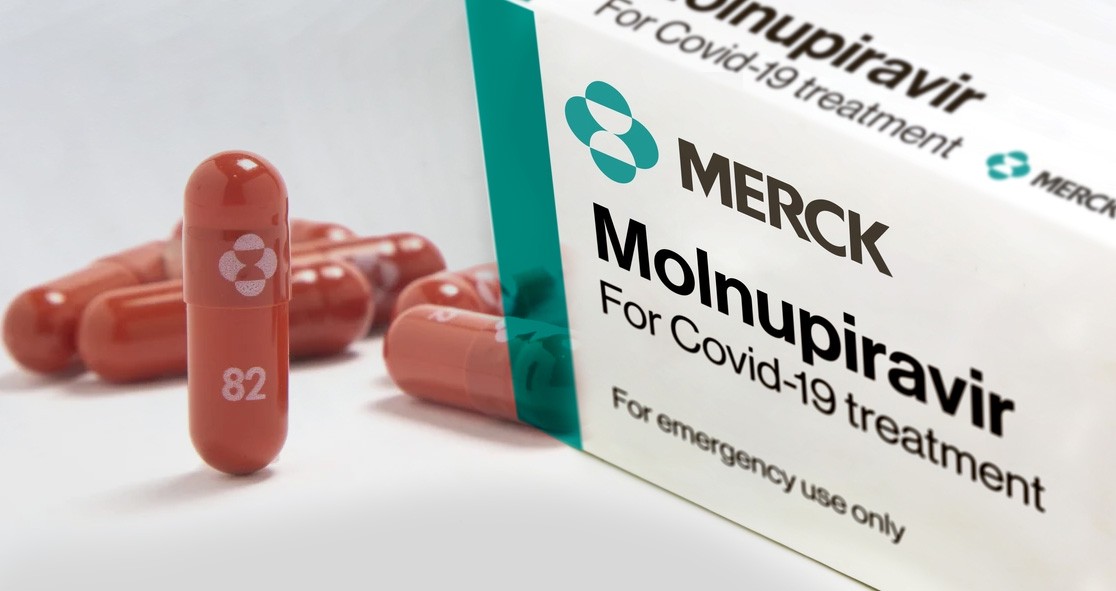A panel of the Food and Drug Administration (FDA) has voted narrowly in favor of Emergency Use Authorization (EUA) of an antiviral COVID pill developed by Merck and Ridgeback Biotherapeutics, according to NPR.
The panel’s vote was 13 for and 10 against EUA. Usually, the FDA is not obligated to follow the panel’s recommendations, but it does.
If the FDA approves Merck’s drug molnupiravir, it would be the first oral antiviral treatment for COVID-19, which you can take at home.
Meanwhile, the FDA panel is reviewing a second oral COVID pill from Pfizer, called Paxlovid.
Molnupiravir is taken twice a day for five days and works by disabling mutations in the coronavirus during replication. The drug is for people with mild to moderate illness and those who are at high risk of developing severe COVID illness. Molnupiravir is supposed to be taken within five days of the onset of the symptoms.
Interim results of a clinical study of Molnupiravir found that it cuts the risk of hospitalization or death by 50%. However, the final analysis released Friday showed only a 30% reduction in the risk of hospitalization or death, per NPR.
In the second half of the study, patients who received the drug were more likely to be hospitalized or to die than those who received a placebo, according to an FDA summary. Molnupiravir’s protection against death was seen in the first half of the study, but it did not hold up in the second half.
Dr. Lindsey Baden FDA’s committee chairman, asked Dr. Nicholas Kartsonis, a Merck senior vice president, about this discrepancy. Dr. Kartsonis replied, “I don’t have a satisfying answer to your question.”
There have been some safety concerns over the drug’s ability to cause mutations beyond the virus. The possibility of birth defects weighed on the FDA panel so there were reservations about using the drug in pregnant women. However, some said the drug could also carry some benefits for them.
Dr. Janet Cragan, Medical Officer, Centers for Disease Control and Prevention (CDC), said, “I don’t think you can ethically say it’s OK to give this drug in pregnancy, obviously. But at the same time, I’m not sure you can ethically tell a pregnant woman who has COVID-19 that she can’t have the drug if she’s decided that’s what she needs.”
Also, there were concerns about whether Molnupiravir could cause harmful mutations in the spike protein of the virus.
During the discussion, virologist John Coffin of Tufts University said, “An elevated random mutation rate like the one seen with molnupiravir is a relatively small factor in the development of viral variants of concern.”
Most panelists have called for additional Molnupiravir studies in immunocompromised people.























